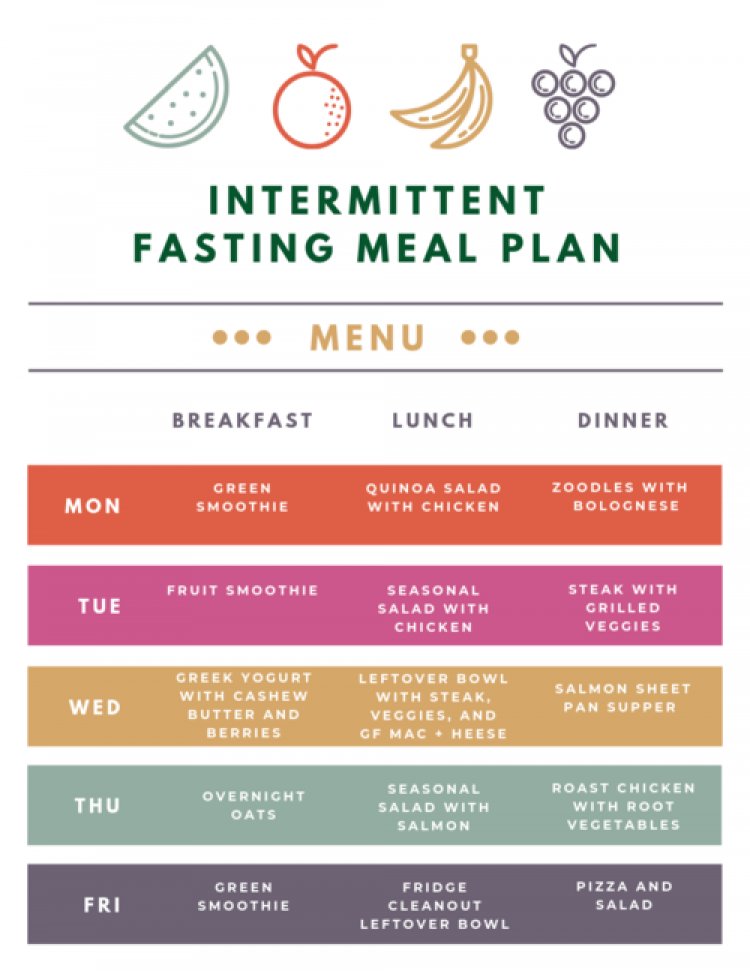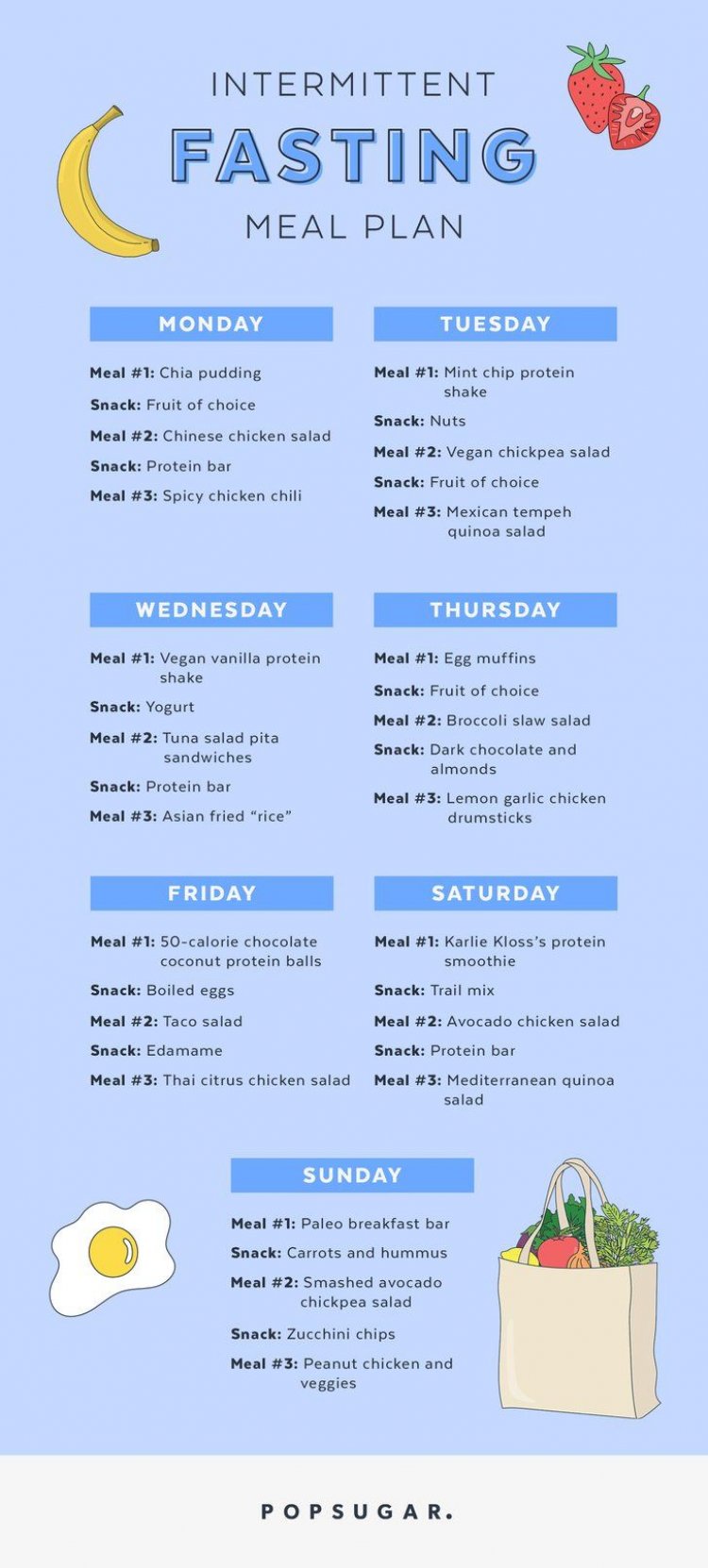Everything you need to know about Intermittent Fasting
So many famous people seem to be losing lots of weight with Intermittent Fasting. Are you considering to do it too? Then here is all you need to know about how it works, its effects and risks.

What is Intermittent Fasting?
Intermittent Fasting (IF) is super popular these days, most probably because you don’t have to cut down on any foods you love as long as you eat your meals in a determined time window. Intermittent Fasting is not that much about what or how much you eat but rather about when you eat. Let me give you an example: If you have your first meal at 11:00 AM in the morning and you eat dinner before 07:00 PM, you are already following the so called 16/8 or Leangains Protocol method which prescribes eating during a period of 8 hours and then fasting for 16 hours. There are other Intermittent Fasting methods such as…
- The 16/8 method: Basically you are skipping breakfast and limiting your daily eating period to 8 hours while fasting during the remaining 16 hours.
- Eat-Stop-Eat: People who apply this method, don’t eat for 24 hours once or twice a week but eat normally on the other days.
- The 5:2 method: With this diet, you consume only 500-600 calories on two non-consecutive days of the week and don’t fast on the other 5 days.
- Alternate-Day Fasting: This routine foresees one day of normal eating and the one day of not eating at all or only a couple of hundred calories.
Basically, there is lots of different Intermittent Fasting diets, but they all have one thing in common: they split the day or the week into eating and fasting periods.
What are the benefits of Intermittent Fasting?
The bad news is that despite the fact that there has been lots of research done about Intermittent Fasting, all the significant studies have been conducted on rats and not on humans. The fat rats did lose weight and their blood pressure, cholesterol and insulin levels improved - but they are rodents. The people studies have shown that Intermittent Fasting is safe and can lead to the desired results such as weight loss or blood sugar regulation but really is no more effective than any other diet.
Advocates of Intermittent Fasting claim the following health benefits:
- Reduces insulin levels and insulin resistance which lowers the blood sugar levels and favors fat burning
- Increases Adiponectin production, a key hormone to burn fat and which concentrations are usually lower in obese people
- Raises growth hormone levels which facilitates fat burn and muscle gain
- Speeds up cellular repair and reduces oxidative stress which favors anti aging
- Reduces inflammation in the body which may otherwise lead to chronic diseases
What do the critics say? Can Intermittent Fasting be dangerous?
It actually can be dangerous in particular for women because the female body is very different from a man’s physiology. If not done properly, IF can cause women to mess up their cycle and throw their hormones off balance. When the body senses starvation, the hunger hormones ghrelin and leptin can easily trigger a person to binge. This pattern of fasting and binging leads to an unhealthy relationship with food and may affect a woman’s body image in a negative way. I am citing Dr. Jason Fung again: ‘Your brain and ovaries communicate through the brain-ovary axis or hypothalamic-pituitary-gonadal (HPG) axis. Your brain releases hormones to your ovaries to signal them to release estrogen and progesterone. If your HPG axis isn’t working well, it can affect your overall health and lead to problems with fertility.’ While more research has to be conducted, Fung is basically saying that a starving body knows it is not the right time to get pregnant.
What does a week with Intermittent Fasting look like?
There is lots of different weekly menu plans that you can find in the internet. Some consist of 3 main meals, some include snacks. Important is that you choose one that is composed of balanced healthy meals like the two I am sharing. If you are suffering from any condition, you should consult your dietitian for assistance.


Which celebrities do IF?
Jennifer Lopez, Beyoncé, Miranda Kerr, Nicole Kidman, Terry Crews, Hugh Jackman and Ben Affleck to name just a few.
Is IF suitable for you?
People with advanced diabetes or who are using medications to treat diabetes, patients with a history of eating disorders like anorexia and bulimia, pregnant or breastfeeding women should not attempt Intermittent Fasting unless under the close supervision of a physician who can monitor them.
What is Squatgirl’s final opinion about Intermittent Fasting?
For people interested in receiving the benefits of Intermittent Fasting in the most healthy way, I recommend to fast between 7PM -7AM. This is easily done and eating early will not only help to balance your hunger hormones but will also increase your sleep quality. While I think it is terrific to get rid off late night meals, I definitely believe that you should also work out five days a week and eat 3 balanced meals, following these rules:
- Avoid sugars and refined grains. Instead, eat fruits, vegetables, beans, lentils, whole grains, lean proteins and healthy fats.
- Let your body burn fat between meals. Don’t snack. Be active throughout your day. Take the stairs and use breaks for a walk outside.
- Avoid snacking or eating at nighttime all the time. This will allow you to wake up hungry for breakfast.























